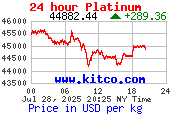The number of homeowners seeking re-mortgaging are in large proportion in the mortgage market. Due to the economic crisis, a large number of homeowners living on a tight budget look out for easier ways to save money wherever possible. Re-mortgaging probably happens to be the easiest way to create money and improve their mortgage interest rate or get extra money to do home repair or pay their existing debts.
A lot of people also prefer to do re-mortgaging because they want to keep their home loan but at the same time, they want to move to a bigger home because of the increase in the number of family members. On the basis of a survey result, people who own a home want to move to a different place on a period of every seven years. So you can see that people will prefer to do re-mortgage, particularly when they are close to the end of the current fixed rate offer.
There is a tough competition between the banks and major lenders and that’s why they seek to find a new customer for their mortgages. A lot of schemes and offers are made in front of the customers so that they can be easily retained for re-mortgaging. Different offers include free arrangement fees, lowered introductory interest rates, Cashback offers, and other such free gifts.
People looking for re-mortgaging should shop with different lenders and financial institutions to see who is offering the best deal on their table. To stay in the competitive market, a good lender will offer a variety of deals because they know that the newcomers to the mortgage market will want to get added features as many as possible.
People with bad credit history should not be too much worried in getting approved for home financing. Even potential borrowers with no credit history are also getting approved for mortgages.
If you are looking to re-mortgage your property and have a good credit history, you don’t need to remain stuck with the current mortgage deal until the payment is fully done. Contact a mortgage broker to find out how you can improve your current mortgage rate as per your current requirements.











 Wikipedia Finance
Wikipedia Finance